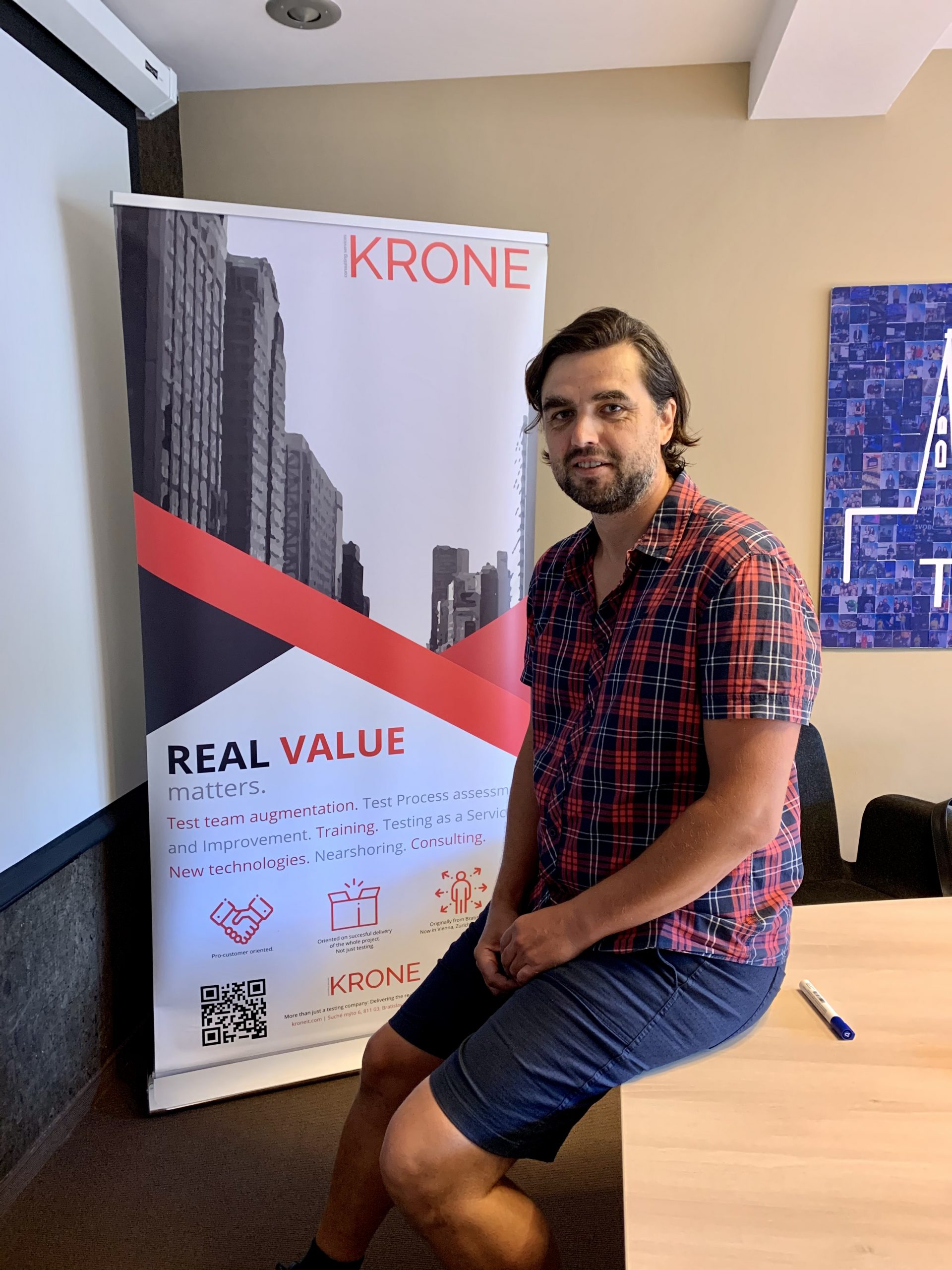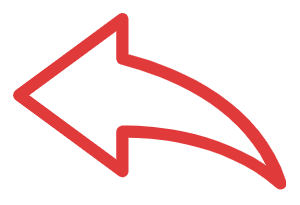Interview with our ISTQB training lecturer – Petr Neugebauer
If you choose from the offer of our ISTQB certified or other trainings, you might meet Petr Neugebauer as a lecturer.
Petr has over 20 years of experience in quality assurance and software testing across various industries. During his career he has held many managerial positions in software engineering. He is an ISTQB Expert Level – Improving the Test Process, ISTQB Advanced Level – Test Manager, ISTQB Advanced Level – Technical Test Analyst and ISTQB Foundation Level – Agile Tester certifications holder. He manages an independent company YES4Q, which provides top educational and consulting services.
In the interview, you will learn more about his personal and work life, his journey to the world of IT, about training, why testers should go through training and you will also be enriched with recommendations for the path of a successful tester.
His motto in the field of testing is: ,,it doesn’t matter what it looks like, but what it really is”

Petr Neugebauer
CEO at YES4Q, Consultant and Lecturer
Introduce yourself to us and tell us something about you:
With more than 20 years of experience, this is difficult to sum up into three sentences.
I’m from Jesenik. I live in the Moravsky kras and I have 2 sons, Bertik and Oliver. I like to travel, cycling and challenges.
I have achieved a master’s degree in Information Systems at the Faculty of Informatics in Brno and later an MBA in strategic management at Nottingham Trent University. At the beginning, I started as a software developer in C/C ++ in telecommunications (Siemens). I have been testing since about 2005.
Professionally, I am focused on several areas. I have recently worked as a Process Improvement Manager for a company developing security and signaling systems for railways, which was quite a challenge. I also work as a lecturer and consultant in my own company. Besides, I am involved in many activities within the ISTQB, and in addition, I am involved in several volunteering projects.
What are your plans for the future?
At a professional level, I want to continue to focus on the company and become a reliable, sought-after and certainly the best training provider in the region. On a personal level, there are my 2 boys who need to start somehow and finally point somewhere.
Which moments of your life you consider the most meaninful?
I like to do meaningful work and especially with people from whom I can learn and who move me somewhere. The turning point in my life was the moment when I realized that I could do a completely different job and in my own way.
What I don’t like, and what takes my energy away, is when I encounter human limitations. It is always necessary to be inhabited by something positive.
I have high demands on everyone I work with, including the clients I choose. I am also very demanding on myself, I will always be satisfied with the best. It was very instructive for me, for example, when I did not get the required number of points in the first attempt at the certification exam of the expert level, I was missing 2 points out of 135 (one point cost me over 350 EUR). However, it kicked me to prepare again and even better, to understand and apply the content of the exam from a practical point of view. This is what helped me to move even further and develop further.
What does your normal working day looks like?
My work day, if I don’t have a client that day, can look chaotic. I have many things planned that I have to or want to do, but there is very little time. Even as I try to plan things, there are always urgent things that need to be addressed immediately. I also have to follow the news in the field, I try to be updated. It is important to constantly monitor trends. I’m interested in things that I can then transform into our activities, so that we can help our clients move and to develop themselves. This helps us to identify critical issues in the processes and approaches and to seek appropriate action to address those issues. We work with clients of various characters so we always have to adapt the solution. And that’s what we want to do and what we enjoy.
Do you like what you do?
Definitely yes. One of the main positives of my work is the opportunity to constantly meet new and often interesting people. I like to meet people who can enrich me with new knowledge and move me forward. Thanks to the fact that I train or consult in various companies, I have the opportunity to solve familiar things in new contexts. Our services are often based on similar problems that we have encountered, and thanks to that we already know what will work and what will definitely not work. But it is always about being able to grasp it in a way that will fit the client. We do not want to offer a universal solution, on the contrary, we enjoy looking for solutions tailored to specific needs. We are most motivated by the recognition of clients and the joy of cooperating for a long time.
And what demotivates us? If we can’t find a way or a will to implement changes. Often, people in companies are willing to make a much greater effort to prevent change than to support it.
What do you perceive as superlative in you job?
The most important thing for me is that I am perceived as an authority (professionally, they usually do not buy it at home), and that clients see results. This manifests itself later in the fact that they can and want to return.
How did you get into the work that you do?
Quite by accident. I started as a developer and once there was an opportunity to get a project from a parent company in Munich. However, the condition was ISTQB certification, which I had no idea about at the time. I left the role of a developer and discovered the magic and secrets of software testing. The real development and career then began with work associated with the ISTQB. Now I am trying to transfer the principles of the unified ISTQB in the form of training to clients so that they can work better, more quality and cheaper.
What would you recommend to those people that intend to grow professionally in testing?
I definitely recommend meetups and not be afraid to read books, which a lot of people reject today. Books are still the foundation of a career in testing, and some are unbeatable (I recommend James Bach, Gojko Adžić or Graham Bath).
What is the meaning of the trainings that you organize?
The purpose of the trainings is to give people a path to their development and to show them that there are no barriers – they can develop in different directions and the possibilities in the field of testing are in my opinion, much wider than in the field of development. We offer trainings and consulting in various areas and business domains of software development and we have recently started with accredited ISTQB training, where we would like to cover most of the product portfolio with our own materials. We rely on the fact that we have people from practice who can cover special areas of software testing and can pass on a full experience to others.
Why are the trainings convenient for testers?
Because we are the best and we enjoy it 🙂
We try to deliver only to those where we see an interest in gaining knowledge and passing on experience. We can apply our experience to different domains and present a number of practical examples that we encounter. Another thing is that we are at the source of information – we are involved in the key activities of the ISTQB, where, for example, we participated at least as a reviewer in all new curricula of the ISTQB.
What did motivate you to organize trainings?
The impulse was the demand for consultations and trainings, the demand or recommendations of acquaintances that I meet at meetups. These are mainly companies and people with whom I still maintain relationships.
How do you like lecturing in krone? How do you perceive the cooperation with us?
Great, because I meet people who have the potential to develop and want to absorb knowledge. These are people who want training, want to discuss and not have to. They are people from different fields of software development who bring us new knowledge.
What are the top 3 technologies/trends that you think are changing the world?
– artificial intelligence will change the approach to testing but will certainly not replace testers
– current trends in development such as pressure on price, speed of delivery and complexity of the system.
What is your favourite IT related joke?
I remember a few cartoon jokes. But one that I could describe, is from hiring.
HR manager: ,,And the last question, If you tell me what deadlock means, we’ll hire you.“
Candidate: ,,If you hire me, I’ll explain the deadlock.“

